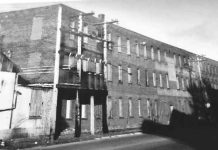It is heartwarming to hear the number of people, children included, who will go up to an elderly person wearing a military cap of some kind and say, “Thank you for your service.” I hear it myself when I am wearing something displaying the Sons of the American Legion logo. When that happens, I explain…



